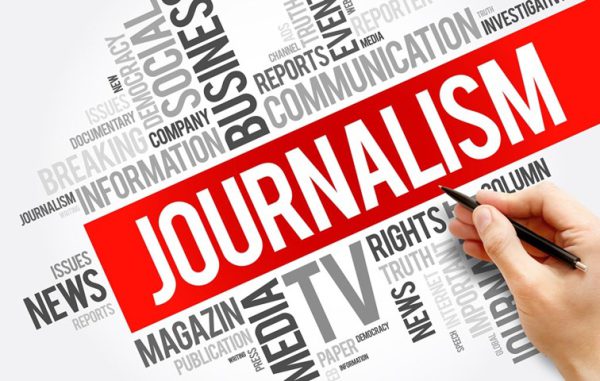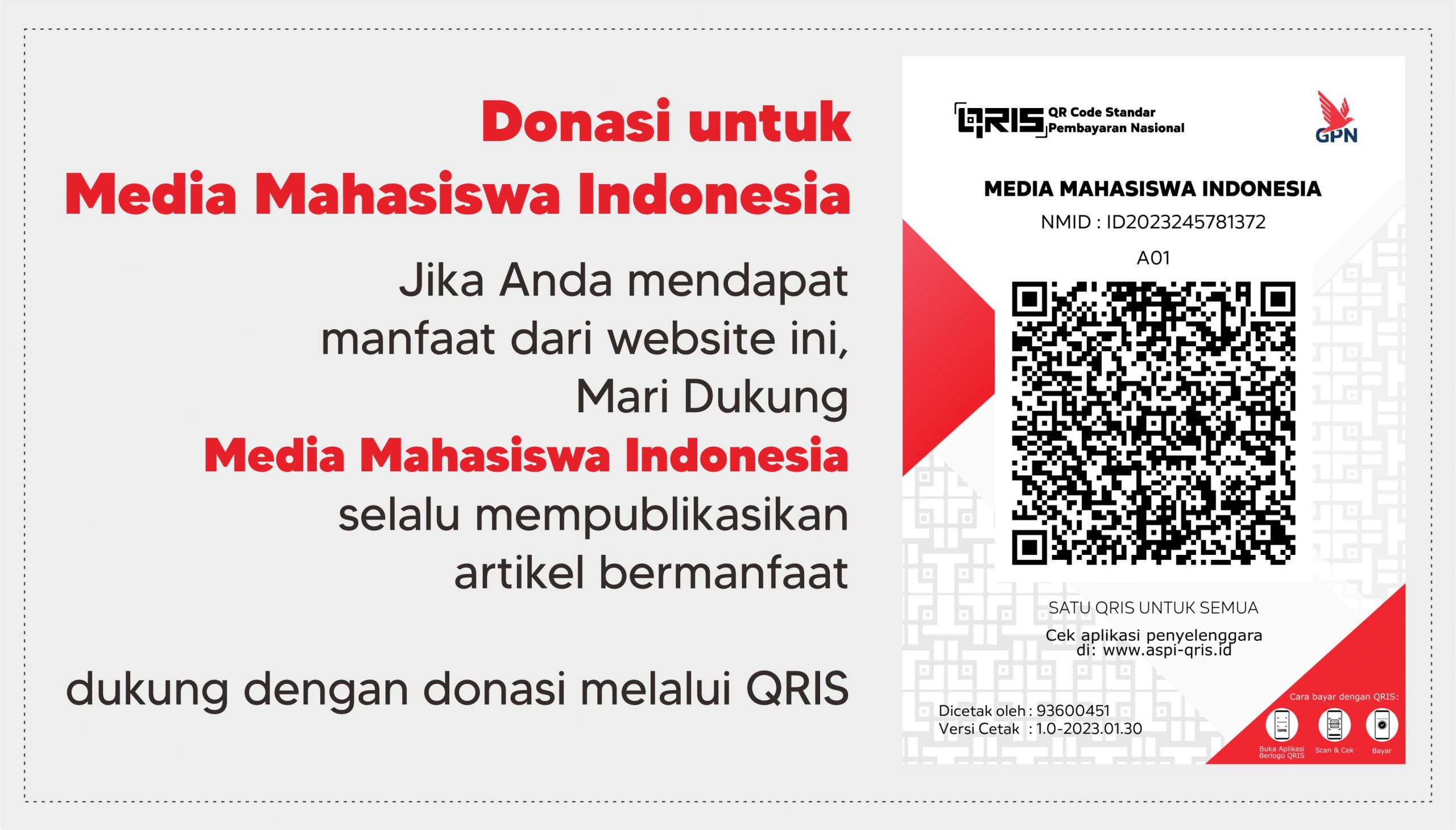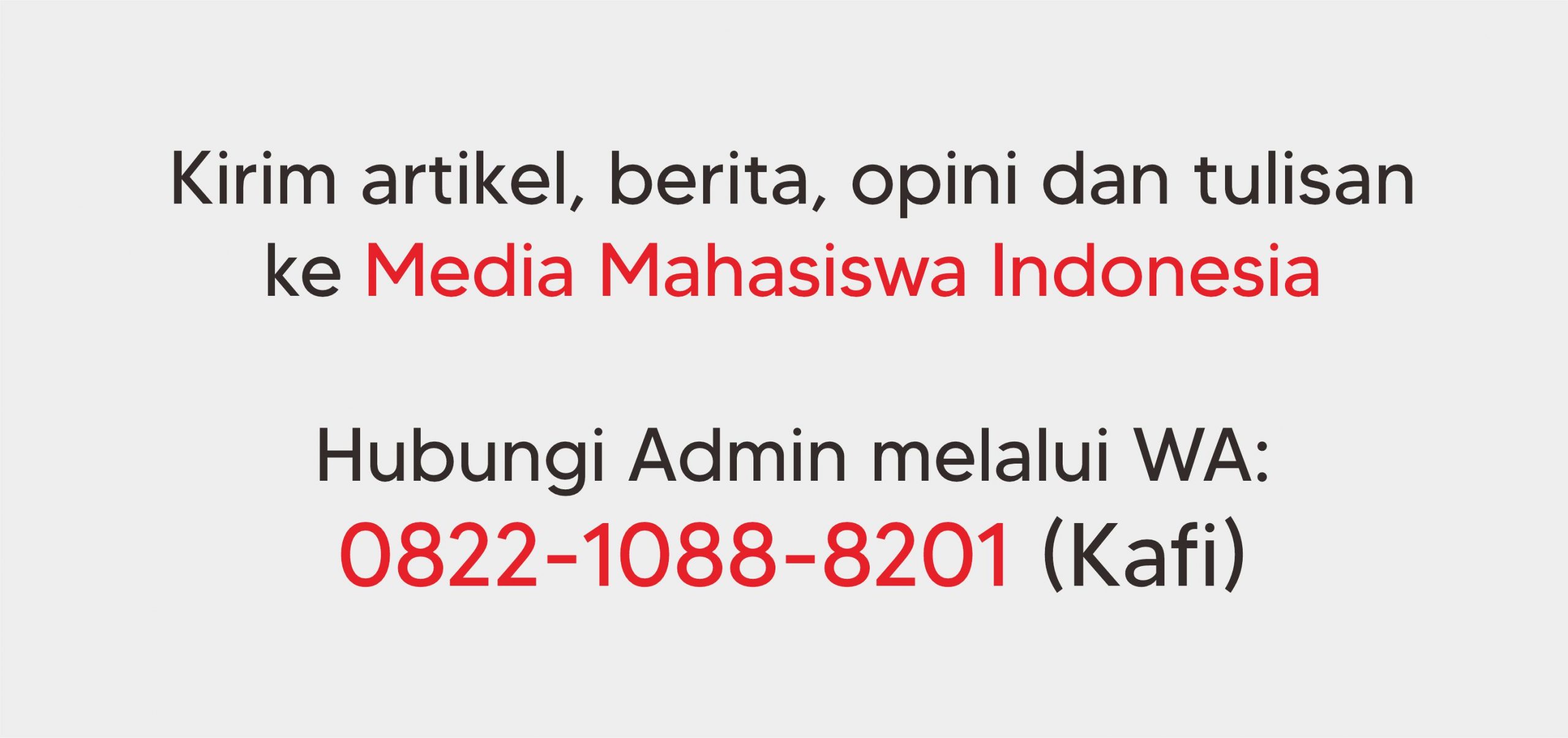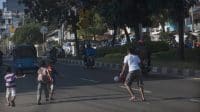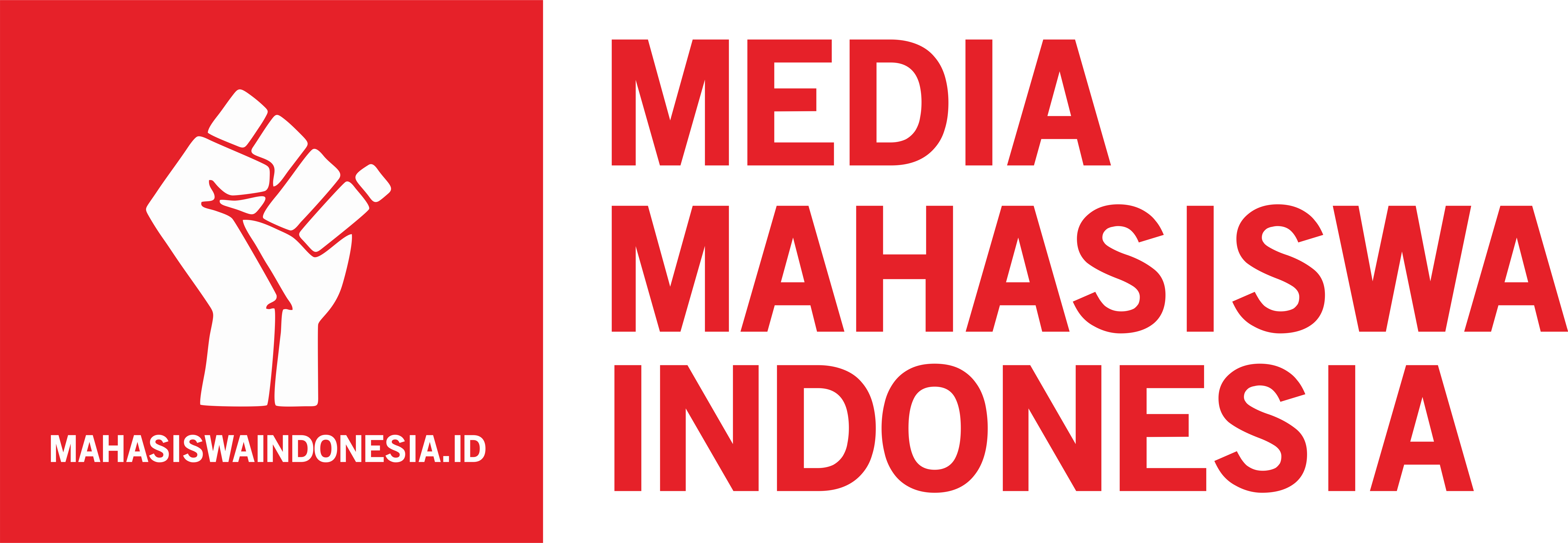ABSTRAK
Tujuan penelitian ini adalah mengetahui pelanggaran-pelanggaran kode etik yang sering dilanggar oleh jurnalis di surat kabar online Indonesia. Selain itu juga, tujuan penelitian ini untuk mensosialisasikan kode etik jurnalistik Indonesia. Dengan menganalisis surat kabar online di Indonesia. Dapat disimpulkan bahwasanya kode etik jurnalistik banyak diabaikan di surat kabar online di Indonesia. Banyak kasus-kasus pelanggaran kode etik di surat kabar online. Dewan Pers selaku lembaga yang berwenang untuk mengawasi kegiatan jurnalistik mengalami kesulitan dalam mengontrol surat kabar online. Di Indonesia surat kabar online cukup berkembang. Terbukti dengan banyaknya portal-portal surat kabar online seperti kompas, antara dan lain sebagainya. Berkembangnya surat kabar online terdapat dampak positif dan dampak negatifnya. Dampak positifnya, kecepatan dan kebaruan berita terjaga sepanjang waktu. Dengan kata lain isi beritanya tidak basi. Sedangkan dampak buruknya, terkadang isi berita dalam surat kabar online tidak akurat atau bahkan melanggar kode etik jurnalistik. Penelitian memperolehkan hasil bahwasanya pada saat ini kode etik jurnalistik masih dilanggar oleh jurnalis di Indonesia. Oleh sebab itu, dewan pers harus lebih ketat dalam mengawasi berita di surat kabar online dan pembaca surat kabar online juga harus memiliki edukasi tentang kode etik jurnalis.
Kata-kata Kunci: Kode etik; surat kabar online; Indonesia; dewan pers
ABSTRACT
The purpose of this study is to find out the violations of the code of ethics that are often violated by journalists in Indonesian online newspapers. In addition, the purpose of this research is to socialize the Indonesian journalistic code of ethics. By analyzing online newspapers in Indonesia. It can be concluded that the journalistic code of ethics is widely ignored in online newspapers in Indonesia. There are many cases of violations of the code of ethics in online newspapers. The Press Council as the institution authorized to oversee journalistic activities has difficulty controlling online newspapers. In Indonesia, online newspapers are quite developed. It is proven by the many online newspaper portals such as Kompas, Antara, and the others. The development of online newspapers has both positive and negative impacts. On the positive side, the speed and freshness of the news are maintained all the time. In other words, the content of the news is not stale. While the bad impact, sometimes the content of the news in online newspapers is inaccurate or even violates the journalistic code of ethics. The research found that at present the journalistic code of ethics is still being violated by journalists in Indonesia. Therefore, the press council must be stricter in monitoring news in online newspapers, and readers of online newspapers must also have education about the journalist’s code of ethics.
Keywords: Code of conduct; online newspapers; Indonesia; press council
INTRODUCTION
Previous studies related to this title include those conducted by Mondry (2009), who argue that the media is an institution that acts as an agent of change who is a pioneer of change. This is the main paradigm of the media. Second, Merril (1999), states that journalists must carry out their daily responsibilities under the ethics of journalism. Since ethics towards journalists apply rules” in the media that must be obeyed, the degree of freedom is still in their actions. Third, Marcelino (2012), mentions in his research, journalistic ethics must be based on a code of ethics and moral standards, which require journalists to carry out their work. Fourth, Santana (2017), inserts in his book, Contemporary Journalism, the journalist’s code of ethics as a set of moral principles that reflect the rules that all journalists must obey. Fifth, Yuwono (2011), also mentions that a professional code of ethics is a norm or a written rule that is set and accepted by a group of professions that provides instructions and directions on how to act and guarantee the profession.
Furthermore, the sixth research, according to McQuail (1991) based on the facts, journalists always work under pressure to be professional about the needs and goals of the organization. Journalists as mass communicators in stressful situations. The Seventh Research, according to Sukardi, (2011), if journalists violate the journalistic code of ethics, they will violate the law and be subject to criminal sanctions. Eighth, Seeger (2009). Also mentioned is that the flexibility to know the code of ethics of behavior is skilled and becomes important for a journalist. Ninth, Rayner (2004) explicitly states that expertise is the ability to decide, balance, impartiality in news writing and implies that their autonomy is free from any political or industrial pressure. And tenth, Siregar (1990) concludes that a set of rules is needed so that journalistic work can run well, this is where the importance of the journalistic code of ethics as a binding norm for journalists in carrying out their profession. The difference between this study and previous studies is to socialize the journalistic code of ethics in Indonesia, analyze, and conduct a deeper search of the journalist’s code of ethics and violations that often occur on several media platforms or online newspapers in Indonesia.
We have conducted research into various media and online newspapers in Indonesia. Some of these sites also display various news. The majority of the news presented in it complies with the journalist’s code of ethics and deserves to be read by the virtual community. Even so, we found several sources that should not meet the terms or conditions in the world of journalism. For example, content that is too sadistic, causes division, is too biased towards one particular political camp (not showing neutrality), displays the identity of the victim without initials, and etc.
The code of ethics is related to behavior and moral values, violations of the code of ethics are subject to legal sanctions. Fulfillment and implementation of the journalistic code of ethics is a form of journalistic professionalism and through the implementation of journalistic activities in accordance with the journalistic code of ethics, journalists are responsible for themselves and the community. In their journalistic activities, journalists include the search, acquisition, ownership, storage, processing, and transmission of information in source form, tone (audio), image (visual), tone and image (audiovisual), as well as data and graphics. as well as in other ways through the use of print media, electronic media and all types of channels available and under the supervision of agencies in connection with press activities in Indonesia.
The journalistic code of ethics is a collection or collection of ethics in the field of journalism that has been made and agreed upon by journalists’ groups or organizations. In other words, the journalistic code of ethics is made by the journalists themselves and applies only to journalists. There is no single person, organization, or other body other than the journalist himself who can use and apply the journalistic code of ethics. In addition, if a journalist violates the journalistic code of ethics, a person or entity that is not part of a journalist cannot determine the violation of the journalistic code of ethics. (Wina, 2012, p. 324)
The journalistic code of ethics has four principles. The first is morality, the meaning of the principle of morality is what moral values are the main content of the journalistic code of ethics. Second, democratic, what this principle means is that journalists have the obligation to serve the right of reply, the right of correction, to be independent, and to produce balanced news. The third is professionalism, the meaning of the principle of professionalism is that journalists must be professional by not violating the journalistic code of ethics. Then the last is the principle of the rule of law, what is meant by the principle of the rule of law is what legal values are adopted and supported by the journalistic code of ethics and why this can happen. These four principles should serve as guidelines for journalists. So that violations of the journalistic code of ethics can be avoided.
The Journalistic Code of Ethics plays a very important role in the world of the press, which serves as a guide to the values of the journalistic profession so that the Journalistic Code of Ethics is understood and implemented by journalists. Therefore, journalists must comply with the Code of Ethics approved by the Press Council. Compliance with the journalistic code of ethics agreed upon by the press council means that journalists understand how to find, report, and present news, so that the journalistic code of ethics applied by journalists as a guide in writing news must be understood that the news presented is correct and by following pers under with the facts in the field press to avoid things that can harm other people. According to Marcelino (2012), journalistic ethics must be based on behavioral and moral standards that must be carried out by journalists in carrying out their work. This journalistic ethics does not only function to maintain and maintain quality standards of journalistic work, but also to protect or prevent the public from the possible negative impact of the wrong actions or behavior of the journalists concerned. (Marcelino, 2012)
FORMULATION OF THE PROBLEM
The formulation of the problem in this study are:
1. What are the applications of the Journalistic Code of Ethics in Online Newspapers in Indonesia?
2. Why is there a violation of the Journalist Code of Ethics in Online Newspapers in Indonesia?
3. What is the solution in overcoming violations of the Journalist Code of Ethics in Online Newspapers in Indonesia?
RESEARCH PURPOSES
Based on the formulation of the problem, the objectives of this study are:
- To find out how to apply the Journalistic Code of Ethics in Online Newspapers in Indonesia.
- To find out problems in violations of the Journalist Code of Ethics in OnlineNewspapers in Indonesia.
- To find a solution in overcoming violations of the Journalist Code of Ethics in Online Newspapers in Indonesia.Kegunaan Penelitian
RESEARCH USES
- Theoretically, this research is expected to provide insight into the disciplines of communication and journalism as well as become a guide for writers to discuss various topics related to the Indonesian Code of Ethics, especially in local online newspapers.
- Empirically, this research is expected to be input for online newspapers in Indonesia by taking into account the written/unwritten norms in the Journalistic Code of Ethics.
From the explanation of the problem above, the writer decides that the analysis of code of ethics violations in the News article in the Indonesian Online Newspaper becomes our focus in this research. With the aims and uses of the research described above.
MATERIALS AND METHODS
This study uses a quantitative approach and integrates researchers about violations of the journalistic code of ethics in online news media. This study also uses an empirical approach by conducting a research approach that is used to describe the conditions seen in the field as they are about violations of the journalistic code of ethics and observations in Indonesian online newspapers. The collected sources are then reviewed to ensure their suitability to the topic of discussion. The information obtained from the sources that have been collected is then connected to each other to achieve the research objectives. The instrument used as the subject of observation is the Journalistic Code of Ethics which consists of several articles and paragraphs. Violation of the journalistic code of ethics in online print media as an instrument object. All data collection activities obtained were violations of the code of ethics in online newspapers from 2000 to 2021.
RESULTS AND DISCUSSION

The subject of this research is an online newspaper in Indonesia. Newspaper is one variety of the scope of print journalism. Newspapers are printed sheets that contain reports that occur in the community with the characteristics of being published periodically, of a general nature, the contents of which are up-to-date and current on anything and anywhere in the world for readers to know (Effendy, 2005: 241). While online newspapers are one of the information media that function as a means of communication in the form of press media, broadcasting, and communication media that connect various institutions or businesses to their readers. Deputy Chairman of the Press Council 2010-2013 Bambang Harmutri said, “There are around 47,000 media recorded in Indonesia in 2019”. The total number of online newspapers in Indonesia is 44,900 and the rest are other media. With so many online newspaper portals, it is necessary to have an institution that regulates and supervises online newspapers in Indonesia
The Press Council is an institution that oversees and is responsible for journalistic activities in Indonesia. Currently, the Press Council is an independent institution. Unlike in the past, the Press Council was previously an institution that was not independent and was under the authority of the government. Therefore, from the selection of members to the working mechanism, between the Press Council now and then, everything is different. The old Press Council only made decisions or statements in accordance with the wishes of the government, or rather in accordance with the interests of the government. Meanwhile, the independent Press Council makes decisions or regulations on a self-regulation basis, or based on the needs of the press and together with the press community in a democratic manner. The Press Council has a legal basis for journalistic activities. (Wina, 2012, p. 222)
Read More: The Correlation between Students’ Writing Ability and Their Vocabulary Mastery
Freedom of opinion, expression, and press are human rights protected by Pancasila, the 1945 Constitution, and the United Nations Universal Declaration of Human Rights. Freedom of the press is a means for the public to obtain information and communicate, in order to fulfill essential needs and improve the quality of human life. In realizing press freedom, Indonesian journalists are also aware of the interests of the nation, social responsibility, community diversity, and religious norms.
In carrying out its functions, rights, obligations, and roles, the press respects the human rights of everyone, therefore the press is required to be professional and open to be controlled by the public. To guarantee press freedom and fulfill the public’s right to obtain correct information, Indonesian journalists need a moral and professional ethical foundation as operational guidelines in maintaining public trust and upholding integrity and professionalism. On that basis, Indonesian journalists establish and comply with the Journalistic Code of Ethics in accordance with the Journalistic Code of Ethics (Press Council through Press Council Regulation Number: 6/Peraturan-DP/V/2008 concerning Ratification of Press Council Decree Number 03/SK-DP/III/ 2006 concerning Journalistic Code of Ethics as a Regulation of the Press Council):
a) Article 1, Indonesian journalists are independent, produce balanced accurate news, and do not have bad intentions.
b) Article 2, Indonesian journalists take professional ways in carrying out journalistic duties.
c) Article 3, Indonesian journalists always test information, report in a balanced manner, do not mix judgmental facts and opinions, and apply the principle of presumption of innocence.
d) Article 4, Indonesian journalists do not make false, slanderous, sadistic, and obscene news.
e) Article 5, Indonesian journalists do not mention and broadcast the identities of victims of immoral crimes and do not mention the identities of children who are perpetrators of crimes.
f) Article 6, Indonesian journalists do not abuse their profession and do not accept bribes.
g) Article 7, Indonesian journalists have the right to refuse to protect sources who are not willing to know their identity or whereabouts, respect the provisions of the embargo, background information, and off the record in accordance with the agreement.
h) Article 8, Indonesian journalists do not write or broadcast news based on prejudice or discrimination against someone on the basis of differences in ethnicity, race, skin color, religion, sex, and language and do not demean the weak, poor, sick, mentally disabled or disabled physical.
i) Article 9, Indonesian journalists respect the rights of sources regarding their private lives except for the public interest.
j) Article 10, Indonesian journalists immediately revoke, rectify, and correct false and inaccurate news accompanied by apologies to readers, listeners, or viewers.
k) Article 11, Indonesian journalists serve the right of reply and right of correction proportionally.
From the results of the analysis of online newspapers that have been carried out. There are still journalists who violate the code of ethics, especially in online newspapers. The Head of the Commission for Complaints and Enforcement of the Press Ethics of the Press Council Arif Zulkifli said, “Most of the violations of the journalistic code of ethics reported to the Press Council were carried out by online media. The number of complaints indicated to violate the journalistic code of ethics is 700 to 800 complaints per year. And ina said 90 percent were online media or online newspapers.”
From the code of ethics regulations, journalism does not act independently and produces news that is inaccurate, unbalanced and has bad intentions more often than not being violated. This study found 2 cases of online newspapers that violated Article 1 of the journalistic code of ethics. In 2015, the online newspaper Kedaulatan Rakyat was protested by the public. The content in the online newspaper is not independent by containing news that defends corruptors. Then in 2021, Siberzone.id was declared to have violated the journalistic code of ethics by the press council. This is based on a report from a community named Ade. The contents of the online newspaper contain inaccurate or hoax news. From these cases, this has violated Article 1 of the journalistic code of ethics. In addition to the 2 cases already mentioned, there are still examples of cases that violate this article. For example, the Indonesian tabloid which published news was not neutral and demeaned one of the political camps at that time. Such violations are often committed for political, power, and competitive purposes.
The content of the news contained in the writing of the story is too sadistic. In article 4 of the journalistic code of ethics, Indonesian journalists do not make sadistic news. This research found online newspapers that violated the article. Tribunnews on May 26, 2021, published an article whose writing was too sadistic. The news presented is in accordance with existing facts and is accurate, but the content in the news is too sadistic and disturbing so that it is not worthy of publication. In addition to that case, at the time of the viral case in 2020 about a girl who killed a toddler. There are several online media that use the diction ‘raped’ and ‘murderer’ repeatedly. As did the online newspaper Suara.com. This has clearly violated Article 4 of the journalistic code of ethics.
The content or title of the news leads to harassment. Harassment is an act that violates the law in the State of Indonesia. Journalists who violate the law can be said that journalists act unprofessionally. Article 2 journalistic code of ethics Journalists are required to act professionally. However, this study found that online newspapers containing news lead to harassment. This study found that the content or title of online newspapers leads to harassment. On June 28, 2019, the online newspaper Suara.com carried an infotainment report that pointed to the abuse of the victim. The content of the news contains about a person’s intimate organs. Then on May 26, 2021 tribunnews.com published news of harassment against victims and perpetrators. This can be seen in the dialogue between the victim and the perpetrator. In addition to leading to harassment, the content of the news also tells things that are too sadistic.
Online newspapers contain news on ethnic, religious, racial, and inter-group discrimination. Reporting that leads to discrimination against ethnicity, religion, race, and between groups violates Article 8 of the journalistic code of ethics. Discrimination is an act that journalists should avoid. Discriminatory behavior can cause division between parties. However, this study found that there are online newspapers in Indonesia that behave discriminatoryily. On October 8, 2021, Republika.com was indicated to have been discriminated against. The article entitled ‘Islamic and Christian leaders say Israel has no right to take over mosques’. The title seems clickbait and exaggerates the content. In the title, it is like dropping one of the groups.
No respect for private life, except for the public interest. a person’s private life is something that is not for public consumption unless it has been approved by the news subject. Journalists who do not respect someone’s personal life have violated article 9 of the journalistic code of ethics. More infotainment journalists violate this code of ethics. For example, the news was published by batam.voice.com on October 14, 2021. The contents of the news violated the code of ethics article 9. The contents of the news contained personal lives and did not respect someone’s privacy. By discussing a person’s religion, batam.voice.com journalists have a journalistic code of ethics. Basically, religion is a person’s personal life that needs approval if it wants to be published in an online newspaper.
Broadcasting the identity of victims of sexual crimes. This also includes a violation of the journalistic code of ethics. In Article 5, the Indonesian journalist does not mention and broadcast the identity of the victim of an immoral crime and does not mention the identity of the child who is the perpetrator of the crime. This research found an online newspaper in Indonesia that contained the name of the suspect or victim in the article. Regional.kompas.com on July 22, 2020, published news about victims of sexual violence. In the news, the author uses the victim’s real name, not initials. Even though the news incident has been around for a long time, broadcasting the identity of the victim of an immoral crime is a violation of article 5 of the journalistic code of ethics.
This study proves that online newspapers are the media that most often violate the journalistic code of ethics. Though the code of ethics is very important for a journalist. The reason the code of ethics is very important is to protect the existence of a professional journalist in taking part in their field, protect the public from unprofessional actions, encourage healthy competition among journalists, prevent fraud between journalists, and prevent manipulation. (Wina, 2012, p. 316)
Actions against violations of the code of ethics in Indonesia are still unclear. Actually, the law requires journalists to have a journalistic code of ethics and must comply with it in accordance with Article 7 Paragraph 2 of Law no. 40 of 1999. However, there are still journalists who do not join journalists’ organizations so they do not have a code of ethics. Journalists should have an organization and thus journalists have a code of ethics. (Wina, 2012, p. 286)
In addition to journalists who must be selective in publishing news. Online newspaper companies should also have a responsibility for the news they publish. Article 12 Press Law no. 40 of 1999 explicitly states, “Press companies are obliged to publicly announce the name, address and person in charge through the media concerned, 213 specifically for press publications plus the name and address of the printer.” Press companies are required by law to announce the name of the person in charge because the Press Law adheres to a system of fictitious and subjective liability. Without mentioning the name of the person in charge of journalistic work, it will be difficult for those who have to bear the burden of responsibility. In the old Press Law terminology, as well as in the press tradition, that responsibility was usually held by the editor-in-chief or chief editor. Until now, there are still many press companies who have this opinion, so they do not state who is in charge. Whereas in Law no. 40 of 1999 concerning the Press to include the name of the person in charge is an obligation. Press Law No. 40 of 1990 no longer uses the term editor-in-chief, although the use of editor-in-chief is not prohibited. But the main thing in the Press Law no. 40 of 1999 concerning the Press, the chief editor is no longer automatically equated with the person in charge. The position of editor-in-chief can be placed anywhere, the important thing is that there must be a person in charge. (Wina, 2012, p. 222)
The conclusion of the discussion from this research on violations of the journalistic code of ethics in online news media in Indonesia is that there are still many violations of the journalistic code of ethics by much online news media in Indonesia. Many violations of the code of ethics are found in online news media such as violations of privacy rights, loading news containing SARA, the content of the news contained in story writing is too sadistic, broadcasting the identity of victims of immoral crimes, and one of the codes of ethics that is often violated by a journalist is contained news without being independent, produce news that is inaccurate, unbalanced and has bad intentions.
Deputy Chairman of the Press Council 2010-2013 Bambang Harmutri said, “There are around 47,000 media recorded in Indonesia in 2019”. And the Head of the Commission for Complaints and Enforcement of the Press Ethics of the Press Council Arif Zulkifli said, “Most of the violations of the journalistic code of ethics reported to the Press Council were carried out by online media. The number of complaints indicated to violate the journalistic code of ethics is 700 to 800 complaints per year. and ina said 90 percent were online media or online newspapers”. From the theoretical data, it can be concluded that there are still quite a number of violations of the journalistic code of ethics in online news media or online newspapers in Indonesia. Moreover, online news media is currently developing very rapidly and is widely used by the people of Indonesia to become a medium for seeking news information rather than using print media such as newspapers. This should be a lesson for the Press Council and all online news media for journalists in applying the journalistic code of ethics in online news media in Indonesia.
Theories obtained from previous studies related to this title include those conducted by Mondry (2009), who argues “The media is an institution that acts as an agent of change who is a pioneer of change. This is the main paradigm of the media”. In this theory, we agree with the opinion of Mondry (2009) about how the media acts as an agent of change because through the media many things change, regardless of whether the changes brought about by the media are positive or negative. Many new cultures have emerged and replaced traditional cultures. In accordance with this research about how online news media replace print news media or newspapers.
Second, Merril (1999), states that “journalists must carry out their daily responsibilities under the ethics of journalism. Since ethics towards journalists applies as “rules” in the media that must be obeyed with a degree of freedom still in their actions”. In Merrill’s (1999) opinion, we agree with the opinion that journalists must carry out their responsibilities under journalistic ethics. A journalist must always be based on a journalistic code of ethics in carrying out his role. The journalistic code of ethics is a rule that must be obeyed by all journalists. Our research on violations of the code of ethics in the newspaper media proves that the effects arising from the violation of the journalistic code of ethics in the newspaper media are very detrimental to people who read the news that violates the journalistic code of ethics.
Third, Marcelino (2012), mentions in his research, “Journalism ethics must be based on a code of ethics and moral standards, which oblige journalists to carry out their work”. In Marcelino’s research (2012), we agree with his opinion on how journalists must always be based on a code of ethics and always prioritize moral standards when carrying out their obligations as a journalist.
Fourth, Santana (2017), inserts in his book, Contemporary Journalism, “a journalist’s code of ethics as a set of moral principles that reflect the rules that all journalists must obey”. We agree with Satana’s opinion (2017) in the book she wrote about the journalistic code of ethics is a set of moral principles that reflect the rules that must be obeyed by all journalists because the application of a journalistic code of ethics will produce news that is useful for the community.
Fifth, Yuwono (2011), mentions “a professional code of ethics is a norm or a written rule that is set and accepted by a group of professions that provides instructions and directions on how to act and guarantee the profession”. In this opinion, according to Yuwono (2011), we agree that the professional code of ethics is a written norm or rule as well as a guide for carrying out the profession. A Code of ethics is important and indispensable in a profession. The absence of a code of ethics will result in a lack of direction for the profession.
Sixth, according to McQuail (1991) “based on the facts that journalists always work under pressure to be professional about the needs and goals of the organization. journalists as mass communicators in stressful situations”. Agree with this theory about how journalists must always be professional in being a journalist like being a journalist. A journalist will always be faced with a lot of pressure in any situation, especially when he is being a mass communicator such as when he is publishing news about how criticism is directed at the government by the people.
Seventh, according to Sukardi, (2011), “if journalists violate the journalistic code of ethics, they will violate the law and be subject to criminal sanctions”. According to Sukardi (2011), this is true in theory. The journalistic code of ethics made by the Press Council is included in the Journalistic Code of Ethics Law, which if a journalist violates the journalistic code of ethics, he will be subject to criminal sanctions according to applicable regulations.
Read More: Does A Graduate Student from Education Program Have To Be A Teacher?
Eighth, Rayner (2004) explicitly states that “expertise is the ability to decide, balance, impartially in news writing and implies that their autonomy is free from any political or industrial pressure”. Strongly agree with the theory according to Rayner (2004) about how journalists should be able to decide, balance, and be independent or impartial in writing news and all their autonomy must be free from any political and industrial pressures.
And Ninth, Siregar (1990) concluded that “a set of rules is needed so that journalistic work can run well, this is where the importance of a journalistic code of ethics as a binding norm for journalists in carrying out their profession lies”. This theory is directly proportional to this research, regarding the need for a rule to regulate online news media. The journalistic code of ethics has become a forum for setting norms and rules to become the basis for journalists in publishing news in online print media.
CONCLUSIONS
1. The application of the journalistic code of ethics in online newspapers in Indonesia must comply with the Indonesian constitutional guidelines for journalists so that journalists can be held accountable for the administration of published news or information. When implementing the Code of Ethics for Online Media Journalism in Indonesia, a journalist must not make false news, slander one side, be sadistic, and obscene.
2. Factors in the application of the journalistic code of ethics are state political factors and human rights, to obtain protection against false reporting. The government’s policy is to adhere to a journalistic code of ethics which means
That the news published is accurate, balanced, and in accordance with the facts on the ground to avoid things that can harm other parties.
The work is based on data from online newspapers in Indonesia about code of conduct violations. We acknowledge that violations of the code of conduct in Indonesian onlie newspapers are still rife.
REFERENCES
[1] Wina, S. A. (2012). Complete Study 350 Questions and Answers. Jakarta: Dewan Pers.
[2] Mondry. (2009). Understanding Journalism Theory and Practice. Bogor: Ghalia Indonesia.
[3] McQuail D (1991) Mass Communication Theory an Introduction. Jakarta: Penerbit Airlangga.
[4] Mulyana, D. (2010). Communication Science an Introduction. Bandung: Remaja Rosdakarya
[5] Marcelino. (2012). Application of the Journalistic Code of Ethics in Moral Crime News. Skripsi: University Brawijaya Malang.
[6] Seeger MW, Sellnow, Ulmer TL, Novak RR, & Julie M (2009). Applied Communication Ethics A Summary and Critique of the Research Literature. In: LR Frey & KN Cissna (eds). Routledge Handbook of Applied Communication Research. New York: Routledge. 280-305.
[7] Wina, S. A. (2012). Complete Study 350 Questions and Answers. Jakarta: Dewan Pers.
[8] Prasetyo, Y. A. (2018). Number 01 / Regulation-DP / X / 2018 Concerning Journalist Competency Standards.
[9] Sukardi. W. A. 2011. Complete Study 350 Questions and Answers on Press Law and Journalistic Code of Ethics. Jakarta: Dewan Pers.
[10] Santana, K. (2005). Contemporary Journalism. Jakarta: Yayasan Obor Indonesia.
Debri Wahyu Wardana
Raihan Alwi
Muhammad Abdul Syukur
Mahasiswa Program Studi Jurnalistik
Fakultas Ilmu Dakwah dan Komunikasi
Universitas Islam Negeri (UIN) Syarif Hidayatullah Jakarta
Editor: Diana Pratiwi

